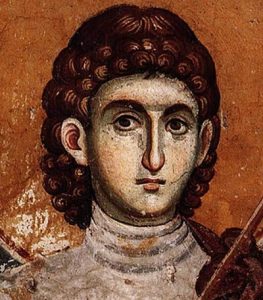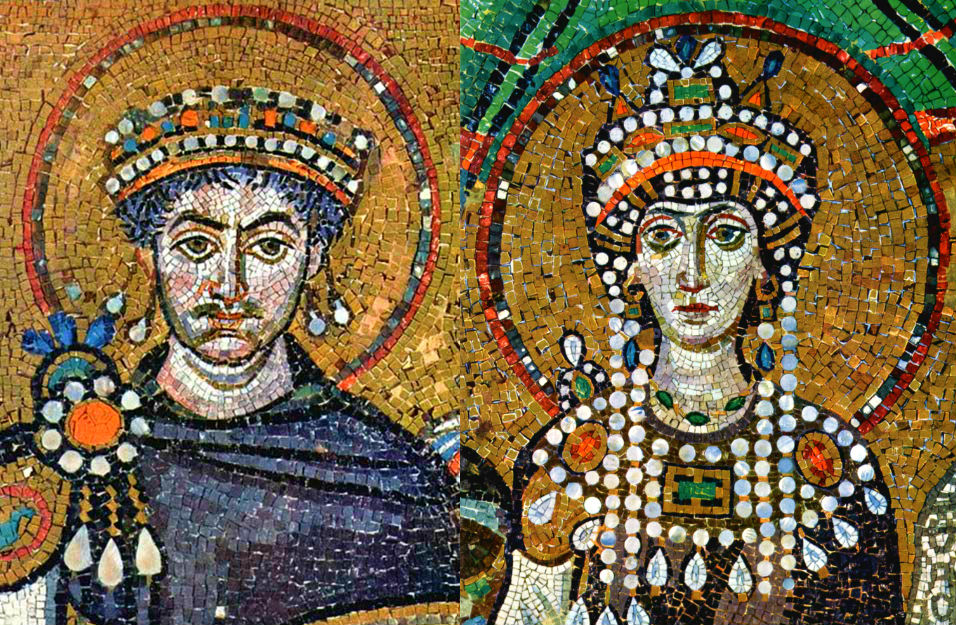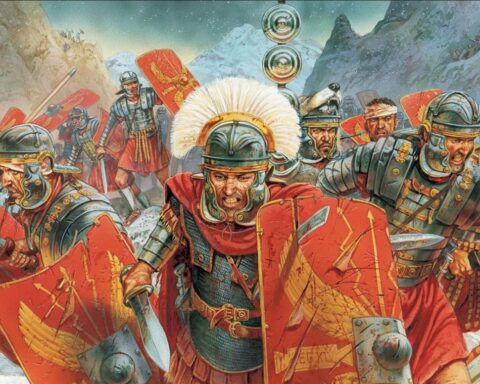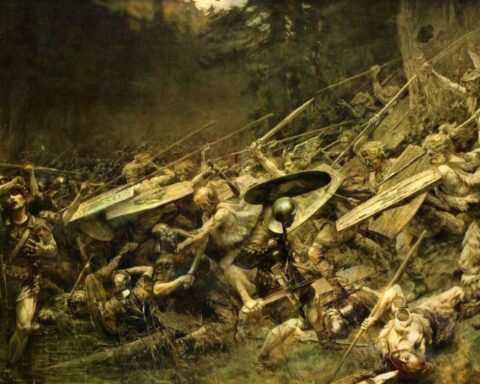One of a series of history books every American should have in his library. Recommendations welcome.
As full as the world is of “tell-all” books and “insider” stories, there has quite possibly never been a literary character assassination quite like the one historian Procopius pulled on the famous royal couple of Constantinople, Justinian and Theodora. Secret History is so calculated, so brutal, and so seemingly out-of-character for the long-time courtier and chronicler that for centuries many wondered if Procopius really wrote it. It is in places so graphic that great historians like Gibbon refused to translate entire passages, preferring to let Procopius’ revelations remain hidden in Attic Greek where only the learned would have access to them.

It is not without reason that Procopius, in explaining why he waited until so late in life to release this history, noted that there were those who “would have put me to a horrible death” if they found out he wrote it. In effect, they would have done to him with the sword what he did, especially to Theodora, with his pen.
Secret History is not a history per se, but a series of stories meant to illustrate the “true reasons” behind certain events and to illustrate characters in a way that Procopius hopes will serve to fill in the vagaries of his previously published history.
In each of thirty chapters short chapters, he selects a character or event to illustrate. Beginning with the wife of Byzantine military commander Belisarius (Procopius’ patron), we learn that she “utterly wanton,” “acquainted with magic drugs,” and “unfaithful as a wife from the start.” Her most blatant misbehavior was kept in check not by fear of her husband but of Theodora, whom she thought might use her indiscretions to destroy her.
Belisarius’ troubles at home, including jealousy and desire for revenge for the wrongs his wife visited on him, caused him to make disastrous military judgments. His wife, for her part, eventually made peace with the Empress and together they subdued him, first by the Queen bringing charges against him for his actions while Justinian was too sick to manage affairs, then by sending him a letter that said, in part, “…because I am greatly indebted to your wife, I have decided to dismiss all charges against you and give her your life…”
With his very life in his wife’s hands, Belisarius gave up all pretentions of manhood and withered away.
Thus does Procopius systematically dismantle the reputations of all the major players of Constantinople. Justin we learn was a dolt, a simpleton who was unable even to give a proper speech; Justinian ruled both him and his kingdom from the start. Justinian was utterly without character or remorse, and insatiably greedy. His wife, Theodora, was so perverse and wanton that rather than covering her body with clothing, she should have covered her face, he says, then goes on to explain in phrases that Gibbon won’t translate exactly what that entailed. Together, Justinian and Theodora systematically ruined their subjects, whether Romans or Christians or the poor or the merchants or the cities or the soldiers or the countryside. The only people who came out well in Procopius’ telling are the barbarians, to whom Justinian doled out all the money he stole from Romans.
Secret History is not so much a history as a 150-page rant, and one that at times must be taken with a grain of salt, as when Procopius tells us with a straight face that Justinian is responsible for the deaths of a trillion people. Besides his wars, Procopius accredits earthquakes, plagues, and floods to the “demon in human form” Justinian, and in his telling the entire known world completely depopulated by the Emperor. Since one must obviously adjust the number of dead number downward by a few orders of magnitude to get the truth, perhaps the other allegations laid upon Justinian and Theodora deserve the same treatment.
However, there are places where Procopius gives us insight into Justinian’s handling of affairs like trade and commerce, as well as the wholly predictable results of bad policies, though politicians from Diocletian to Hugo Chavez keep making the same mistakes.
It seems that the Persians raised the prices of silk garments about the same time Justinian raised import taxes on the same. As a result of their higher costs, vendors in Constantinople raised their prices proportionately.
Justinian, whether honestly incensed at this or just trying to pacify angry consumers, passed a price control that forbade merchants from selling the garments for more than the old price. As a result, the garments immediately disappeared from public markets and were available on the black market only for a price that compensated the vendor for the danger of breaking the law.
In short, the rich could wear silk, the middle class and poor were immediately and completely priced out of the shirts on their backs. The destruction of the market meant that the tariff ceased to bring in even what it had before Justinian wrecked the market, and as a result he had to seek replacement revenue by meddling elsewhere.
Procopius makes great accusations that such a result was precisely what Justinian desired, but as with moderns, he probably gives the politician too much credit. Most bad economic results are better explained by good intentions gone awry than by a ruler dead set on impoverishing his friends and his enemies alike.
And thus it is through Secret History: one can glean a very good idea of the social and political workings, and the personalities of Justinian’s Constantinople.
However, one has to be very careful in taking Procopius at his word. He’s an insightful historian, but he’s also a wordsmith with a very big axe to grind. And as we learn from many modern tell-all books that tell everything but the truth, that’s a very dangerous combination.









